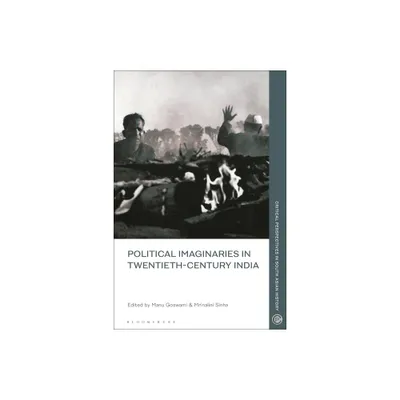Home
Alabama Getaway: the Political Imaginary and Heart of Dixie
Loading Inventory...
Barnes and Noble
Alabama Getaway: the Political Imaginary and Heart of Dixie
Current price: $34.95


Barnes and Noble
Alabama Getaway: the Political Imaginary and Heart of Dixie
Current price: $34.95
Loading Inventory...
Size: Paperback
*Product Information may vary - to confirm product availability, pricing, and additional information please contact Barnes and Noble
In
Alabama Getaway
Allen Tullos explores the recent history of one of the nation’s most conservative states to reveal its political imaginary—the public shape of power, popular imagery, and individual opportunity.
From Alabama’s largely ineffectual politicians to its miserly support of education, health care, cultural institutions, and social services, Tullos examines why the state appears to be stuck in repetitive loops of uneven development and debilitating habits of judgment. The state remains tied to fundamentalisms of religion, race, gender, winner-take-all economics, and militarism enforced by punitive and defensive responses to criticism. Tullos traces the spectral legacy of George Wallace, ponders the roots of anti-egalitarian political institutions and tax structures, and challenges Birmingham native Condoleezza Rice’s use of the civil rights struggle to justify the war in Iraq. He also gives due coverage to the state’s black citizens who with a minority of whites have sustained a movement for social justice and democratic inclusion. As Alabama competes for cultural tourism and global industries like auto manufacturing and biomedical research,
asks if the coming years will see a transformation of the “Heart of Dixie.”
Alabama Getaway
Allen Tullos explores the recent history of one of the nation’s most conservative states to reveal its political imaginary—the public shape of power, popular imagery, and individual opportunity.
From Alabama’s largely ineffectual politicians to its miserly support of education, health care, cultural institutions, and social services, Tullos examines why the state appears to be stuck in repetitive loops of uneven development and debilitating habits of judgment. The state remains tied to fundamentalisms of religion, race, gender, winner-take-all economics, and militarism enforced by punitive and defensive responses to criticism. Tullos traces the spectral legacy of George Wallace, ponders the roots of anti-egalitarian political institutions and tax structures, and challenges Birmingham native Condoleezza Rice’s use of the civil rights struggle to justify the war in Iraq. He also gives due coverage to the state’s black citizens who with a minority of whites have sustained a movement for social justice and democratic inclusion. As Alabama competes for cultural tourism and global industries like auto manufacturing and biomedical research,
asks if the coming years will see a transformation of the “Heart of Dixie.”


















